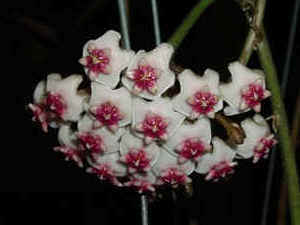
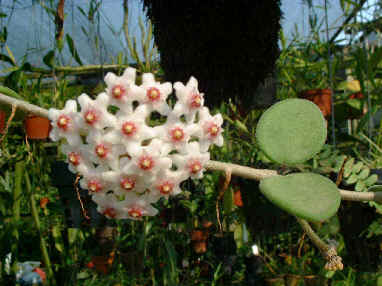
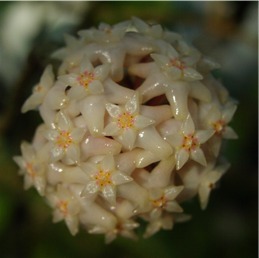
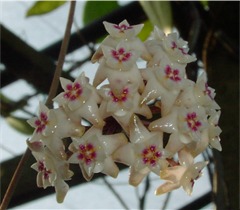
Shown here are 2 forms, the lower one being the typical.

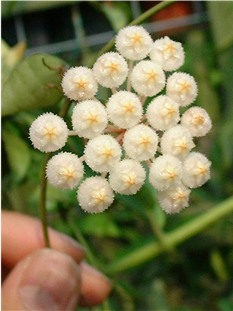
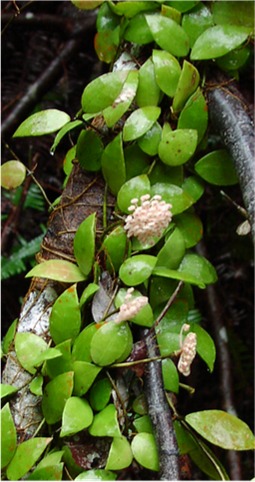
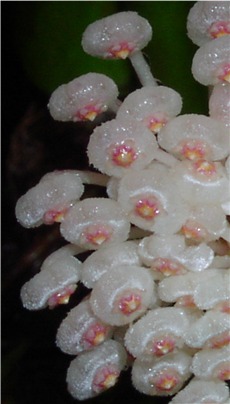
Hoyas II
|
|
H. obovata is a mid-size vine from Moluccas. The leaves look like the rounder version of H. kerri but the flower is decidedly distinct. |
 |
H. nummalaroides is a small plant with 1 inch, slightly hairy leaves and small but numerous umbel of white bloom. This normally low profile plant can be very conspicuous when it flowers en-mass. |
|
|
Hoya
verticilliata. It can tolerate conditions in bright indoor
locations - mine bloom profusely in the balcony in absence of direct
sunlight. The perfume of the bloom is very intense, especially at night,
and is reminiscent of that from Wrightia religiosa. This is the most
common species in Singapore. The plant has seen many name changes over
the years, amongst them H. parasitica (presumably a reference to its
luxuriance overwhelming the host tree) as well as acuta (this I cannot
understand, is it the sharp corona ?) .
Shown here are 2 forms, the lower one being the typical. |
|
|
Hoya coronaria is a large hairy vine in Section Eriostemma. It is not an easy plant to bloom but the large, plastic-like flower is long lasting and fragrant. In Peninsula Malaysia, it is often found scrambling along limestone hills. |
|
|
Another petite species - Hoya lacunosa has the foliage of a Dischidia (the leaf is about 2-4 cm long) and small white furry bloom which signals their presence with an overpowering aroma which belies their size. This species is found in many places in SE Asia - I have seen a few variations: one with heart shaped leaves, one with broad leaves and another with narrow leaves (1 x 3cm). All seems to have the same bloom and fragrance. |
|
|
An unidentified Hoya photographed in-situ at West Malaysia. The foliage is very lacunosa-like but is bloom is much smaller and the peduncle is up to 8cm long. The corona is also distinctly different as you can see. |